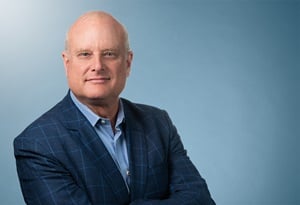Key Takeaways: 2023 Annual Rocky Mountain Fund Advisers Summit
At a Glance
- On October 5, 2023, Faegre Drinker, PINE Advisor Solutions and RSM (US) LLP co-hosted the annual Rocky Mountain Fund Advisers Summit in Denver.
- Panelists discussed recent regulatory and enforcement activity from the Securities and Exchange Commission.
- Attendees of the Summit were given key considerations for structuring and launching investment funds.
On October 5, 2023, Faegre Drinker, PINE Advisor Solutions and RSM (US) LLP (RSM) co-hosted the annual Rocky Mountain Fund Advisers Summit (the Summit) in Denver. Interactive panels of industry specialists discussed recent regulatory developments and enforcement actions impacting fund advisers, emerging trends in private funds and closed end interval investment funds, and insights into investment fund capital raising. Beyond the substance of the panels, the Summit facilitated a tremendous opportunity for peer interactions. The following highlights key takeaways from this year’s Summit.
Updates on Fund Adviser Regulation and Enforcement Actions
Panelists:
- Dee Anne Sjögren, Partner, Faegre Drinker (co-moderator)
- Mark Weakley, Partner, Faegre Drinker (co-moderator)
- Michael MacPhail, Partner, Faegre Drinker
- Jeremy Kollitz, CFA, Attorney, Faegre Drinker
Jeremy Kollitz and Michael MacPhail drew on their experience as former staff attorneys with the Securities and Exchange Commission (SEC). Kollitz led off the session by reviewing current SEC Examination Priorities,1 stressing how SEC Exams serve as leading indicators to enforcement actions and an opportunity for the SEC staff to identify potential areas for further regulation or enforcement. Private fund advisers can expect for the SEC staff to remain focused on environmental, social and governance (ESG) investing, crypto assets, general partner-led secondaries, and compliance with new rules, such as the Custody Rule2 and the Marketing Rule.3 Kollitz expects the Marketing Rule in particular will remain a priority into the next year. MacPhail noted how enforcement of the Marketing Rule has diverged from the SEC’s past practice of allowing for a reasonable grace period between adoption and enforcement so that advisers have an opportunity to make appropriate adjustments in their operations. He noted that the SEC issued one risk alert in connection with the Marketing Rule and commenced an enforcement sweep shortly thereafter, which focused on hypothetical performance disclosures and resulted in substantial fines and orders to cease and desist. MacPhail also noted from recent client experiences that the SEC appears to be bringing Marketing Rule enforcement actions on an expedited timeline.
Kollitz then highlighted key take-aways from the SEC’s Private Fund Adviser Risk Alert4 issued last year which stressed the importance of alignment between conduct and disclosure, sufficient due diligence into underlying investments and accurate and transparent performance disclosures. The Private Fund Adviser Risk Alert also cautioned against the use of hedge clauses which might seek to waive or limit the fiduciary duty otherwise owed under the Investment Advisers Act of 1940 (the Advisers Act). Kollitz observed that, while the SEC staff disfavors hedge clauses, the more sophisticated an adviser’s clients, the greater the latitude for the adviser to shape its fiduciary duty under applicable contractual provisions.5
The panelists then discussed a series of enforcement actions involving ESG, marketing, fundraising, conflicts of interest and custody. In one case, the SEC alleged that a private equity fund adviser breached its fiduciary duties to private funds by receiving accelerated monitoring fees following the disposition of a portfolio company into a continuation fund without proper disclosure, consent or consideration of its duty of care.6 Similar concerns about adviser conduct were subsequently echoed within the adoption of the new Private Fund Adviser Rules. In another case, which did not implicate the Advisers Act, the SEC alleged that the manager of a real estate fund failed to adequately disclose millions of dollars of real estate brokerage fees paid to an affiliate.7 In both cases, the advisers paid millions in disgorgement and penalty fees. The panel also discussed an August 2023 cease and desist order brought by the SEC against Fundrise Advisors, LLC (Fundrise), a registered investment adviser, alleging that Fundrise paid $8 million to over 200 social media influencers and online content creators but failed to fully disclose their financial interests in promoting Fundrise’s advisory services and real estate platform. The SEC also determined that Fundrise failed to adopt compliance policies and procedures reasonably designed to comply with the former Cash Solicitation Rule (many of the requirements thereof now consolidated into the Marketing Rule).8 The panel noted that they also expect the SEC staff to focus on the new Private Fund Adviser Rules (discussed in the final panel).
Key Considerations for Structuring and Launching Interval Funds
Panelists:
- Derek Mullins, Founder and Managing Director, PINE Advisor Solutions (moderator)
- Jeremy Held, Managing Director, Bow River Capital
- Ben McColloch, Managing Director and General Counsel, XAI Investments
- Josh Deringer, Partner & Practice Group Lead – Investment Management Group, Faegre Drinker
Derek Mullins noted there are close to 100 closed end interval funds in the marketplace managing about $87B in total assets. Interval funds are continually offered closed-end funds registered as investment companies with the SEC that invest primarily in alternative asset types such as private equity, private credit, real estate and infrastructure, and may achieve that exposure via investing in other private funds.
Jeremy Held noted how the private fund and registered fund worlds are colliding and that interval funds are a unique product that sits between the two. Echoing Held’s sentiments, Ben McCulloch expressed his view that interval funds are “private funds wrapped in a registered fund package.” Given the recent rise in popularity in interval funds as investment managers seek access to “retail” investors, this panel provided a timely overview.
Convergence notwithstanding, forming interval funds is more costly and time intensive than for private funds, as observed by Josh Deringer. Deringer also noted the difficultly in estimating the time it may take to launch an interval fund because the registration statement is subject to review and comment by SEC examiners whose differing approaches leads to varying timelines. Deringer added that more novel interval fund products will likely slow the launch lead time, particularly given that the SEC examiners adhere to processes and practices that are ill-suited for novel investment theses that have not been otherwise addressed the context of the Investment Company Act of 1940. As a result, experienced interval fund advisers can help shorten the overall registration process timing by tracking well established precedent. He also noted that launching a private fund in anticipation of converting it to a closed end interval fund once the SEC registration process is complete would be an option to start the performance of the adviser’s strategy.
Held noted that there was an investor education component to the successful launch of Bow River’s interval fund. Interval funds require investors to contribute subscription capital up front and therefore do not have closed-end private funds’ feature of capital commitments drawn down in periodic capital calls. Also, in contrast to closed-end private funds, there is a liquidity component, often quarterly redemptions, depending on the fund’s ability to strike a net asset value and potentially subject to a “gate” imposed on redemption requests. Ultimately, considering the upfront investment in time, capital and education (both to investors and managers), panelists stressed the importance of first identifying a target market before bringing a new interval fund to the market in order to enhance the prospects for a successful launch.
What Investors Are Seeking – How to Raise Capital in This Market?
Panelists:
- Tiffany Reeves, Partner, Faegre Drinker (moderator)
- Amanda White, CCO & Associate General Counsel, Ascension Investment Management
- Devin Arguinchona, CFA, Analyst, Agility Outsourced CIO
- David Dornbirer, Vice President – Mission Investments, CoBank FCB
Tiffany Reeves, who represents institutional investors in private funds, noted she has observed many of her clients consolidating investments with established managers with whom they have a previous relationship in a “flight to familiarity,” as well as a shift in bargaining power that favors investors in this slow market. Amanda White confirmed that Ascension has participated in the flight to familiarity, partly because of the slow fund-raising market, but also because of Ascension’s impact-based investing and the difficulty to build new relationships with managers during (and coming out of) the COVID-19 pandemic. As of late, Ascension, like other investors, has been looking for opportunities for co-investments with those familiar managers.
Participating in an early close is currently a concern for investors because of the difficulties managers are experiencing in fund raising. David Arguinchona shared that Agility protects against a hung fundraise following investment in an initial close by looking for opportunities for a tiered commitment that is contingent on the progress of fundraising. From an investor perspective, the effects of the market vary depending on the asset class and strategy. Overall, there has been a shift away from capital-intensive strategies and toward energy, private credit and short-term or liquid investments. Arguinchona expressed skepticism of private equity funds that rely on leverage for higher levels of success given the current high levels of interest rates. Ms. Reeves shared that she expects to see investors push managers to adopt fiduciary duty standards using the Private Fund Advisers Rules as the floor (and not the ceiling).
David Dornbirer added his observations of fund raising from the unique focus of CoBank’s investments (in concert with other farm credit banks) in Rural Business Investment Companies, a U.S. Department of Agriculture program that incentivizes private equity and venture capital investments in eligible rural enterprises. Dornbirer noted that his institution, and the other farm credit banks, have a particular focus on mission-based investments that can shape their approach to capital allocations and fund governance and other requirements.
Emerging Trends in Investment Funds – Crypto and Tokenized Vehicles
Panelists:
- Skip Carlson, CPA, Director, RSM (moderator)
- Alexander Blume, Managing Director, Two Prime LLC
- Devin Eldridge, Chief Strategy Officer, Bitwave
Skip Carlson led a discussion on the difficulties of adapting cryptocurrency into the private fund space. Alexander Blume stressed the importance of investor education and the crypto managers’ ability to explain their investment program in layman terms. Devin Eldridge noted that compliance with the Custody Rule is one of the greatest operational struggles for cryptocurrency firms operating in the private fund space. One of the draws of cryptocurrency is its liquidity, but that same feature makes pricing difficult and there is no technology to support traders or to allow managers to have oversight over their employees’ trades. Blume explained that Two Prime takes every effort to comply with applicable rules and regulations, but there is not yet a qualified custodian that will engage with cryptocurrency. Carlson concluded the panel discussion with thoughts about what it will take for cryptocurrency to expand. For Blume, there needs to be a policy reason for people to turn to cryptocurrency. “The greatest strength of cryptocurrency is the financial freedom and access to markets it offers,” Blume said. But this reasoning resonates more in restrictive societies abroad and less in the United States, where the utility draw towards cryptocurrency has yet to emerge.
Emerging Trends in Investment Funds – The New Private Fund Advisers Rules
Panelists:
- Jason Kellogg, CPA, Partner, RSM (moderator)
- Alex Bradford, CPA, Partner, RSM
- Jeffrey Blumberg, Partner, Faegre Drinker
The panel first highlighted several enforcement actions detailing conduct that the SEC is clearly trying to end through the enactment of the New Private Fund Adviser Rules (the New Rules),9 specifically, lack of transparency, conflicts of interests and governance mechanisms. Jeffrey Blumberg discussed a recent lawsuit filed against the SEC which alleges that the SEC exceeded its statutory authority in passing the New Rules. Blumberg commented that he views the case against the SEC as having some likelihood of success, albeit the breadth of any such success difficult to predict.
The panelists then provided an overview on three of the more impactful components of the New Rules: (i) Private Fund Quarterly Statements Rule; (ii) Private Fund Adviser Audits Rule; and (iii) Preferential Treatment Rule. Alex Bradford advised that the Private Fund Quarterly Statements Rule requires registered investment advisers to distribute quarterly statements, a requirement that registered fund advisers should start to think about in advance of the compliance date, particularly for illiquid private funds that do not currently have a mechanism for striking net asset values on a quarterly basis. In such situations (and others), one of the challenges the New Rules create is the lack of SEC guidance when it comes to practical implementation. However, advisers should not expect the SEC to offer any guidance before the litigation is resolved.
Jason Kellogg then turned to the Private Fund Adviser Audits Rule which requires registered investment advisers to engage independent auditors that are registered with the Public Company Accounting Oversight Board (PCAOB) to audit their funds’ annual financial statements in accordance with U.S. GAAP, and to deliver the audited financial statements to fund investors within the prescribed time period (e.g., 120 days for a private fund or 180 days for a private fund of funds). Kellogg commented that in his capacity as an auditor, he at times finds that annual audits are not feasible for certain private fund advisers and that the surprise exam approach makes more economic sense. However, as the name suggests, the Private Fund Adviser Audits Rule will no longer allow advisers to avail themselves of the surprise examination approach — a transition which will require a significant change in operations for impacted advisers.
The Preferential Treatment Rule, in part, addresses side letters that grant 1) preferred liquidity and 2) preferential transparency, which the adviser reasonably expects would have a material negative effect on other investors. If advisers offer these types of side letter terms to some investors, they must offer the same to all others. In terms of impact to advisers, Blumberg expects that advisers are already judicious when it comes to granting preferential liquidity to investors since those grants could conflict with the adviser’s fiduciary duties. When it comes to preferential reporting, Blumberg finds that the potential burden of providing the same additional reports to other investors would be small and that the adviser’s willingness to share would be great.
- 2023 Exam Priorities
- SEC Charges Five Advisory Firms for Custody Rule Violations (Sept. 5, 2023)
- SEC Risk Alert: Examinations Focused on Additional Areas of the Adviser Marketing Rule (June 8, 2023)
- SEC Risk Alert: Observations from Examinations of Private Fund Advisers (Jan. 27, 2022)
- Commission Interpretation Regarding Standard of Conduct for Investment Advisors (July 12, 2019)
- SEC Charges Private Equity Fund Adviser American Infrastructure Funds for Breaching Its Duties (Sept. 22, 2023)
- SEC Charges Private Equity Firm Prime Group for Inadequate Disclosure of Fees Paid to Affiliates (Sept. 5, 2023)
- SEC Charges Fundrise Advisors, LLC for Paying Content Creators to Solicit Clients in Violation of the Cash Solicitation Rule (Aug. 22, 2023)
- SEC Enhances the Regulation of Private Fund Advisers (Aug. 23, 2023)






